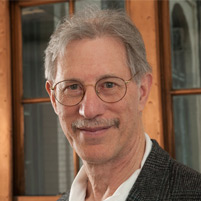Statistical Connections

Jay Kadane
To Carnegie Mellon University professor Joseph B. (Jay) Kadane, "statistics is an adventure" — taking him from nuclear defense research to racial discrimination testimony to a Congressional briefing on human rights in Argentina. His latest? Receiving two prestigious awards for his first textbook, "Principles of Uncertainty."
Addressing Bayesian statistics and its wide application to numerous fields, the text was recently named a 2012 Outstanding Academic Title by Choice magazine. As a premiere source, the publication of the Association of College and Research Libraries' list represents the top tenth of one percent of scholarly titles.
Kadane, the Leonard J. Savage University Professor of Statistics and Social Sciences, Emeritus, was also awarded the coveted DeGroot Prize given by the International Society for Bayesian Analysis in recognition of an outstanding statistics science book. Fittingly, the award honors the founding head of CMU's department of statistics.
Asked for his advice on curriculum while on a Fulbright grant-funded trip to Chile, the prolific author of numerous books and papers was inspired to write his first text.
"I was asked what I thought their students should know," remarked Kadane. "It occurred to me that there's quite a long story about that and I started writing. It took me five years to finish."
Amazingly, Kadane wrote and posted "Principles of Uncertainty" online for free download before even contacting a publisher. Now in hardcover, he insists it remain online.
"If some poor student somewhere wants to know what I think, I don't want his money," he stressed. "I want his head."
He's applied statistics to pressing social issues, writing on matters of justice and often serving as an expert witness, proving, for example, police harassment of African-Americans on the New Jersey turnpike.
As chair of the American Statistical Association Committee on Scientific Freedom and Human Rights, Kadane recently briefed Congress regarding the Argentinean government's threats of criminal sanction against statisticians for truthful inflation reporting.
The committee is currently examining a similar problem in Greece, where the statistical agency head is under fire for accurately reporting the fiscal deficit.
Kadane graduated as a math major during the Cold War, but "very concerned that we were about to blow ourselves up," enrolled in a number of social science courses. Discovering statistics as a way to blend his interests, he went on for graduate training.
Interning at the Center for Naval Analyses (CNA), he worked on strategic problems, including the targeting of nuclear weapons. After receiving his Ph.D. and two years teaching at Yale, he returned to the CNA for three years.
Kadane was quickly sought by CMU, however, and at age 31, became full professor and department head. Forty-one years later, he remains at CMU — the university's interdisciplinary focus an ideal match for his interests.
"Interdisciplinarity is fundamental to what I do in statistics," stated Kadane, who has applied his knowledge to physics, archaeology, economics, Internet security, political science and much more.
"As a famous statistician said, 'we get to play in everybody's backyard,'" he explained. "Part of the enjoyment is getting to learn about all these different subjects."
He's proud to point out that CMU's statistics Ph.D. students conduct data analyses in cooperation with other disciplines, cementing connections across campus.
While still actively researching, publishing and advising — "I have a few more books in the back of my head that I may get to write" — Kadane taught across campus for many years, offering classes in the departments of computer science, philosophy, business and social and decision sciences.
"These are the kind of connections that make Carnegie Mellon so different," noted Kadane, "And so much fun."
Related Links: Dietrich College of Humanities & Social Sciences | Department of Statistics | Read the press release | L.A. Times op-ed piece
